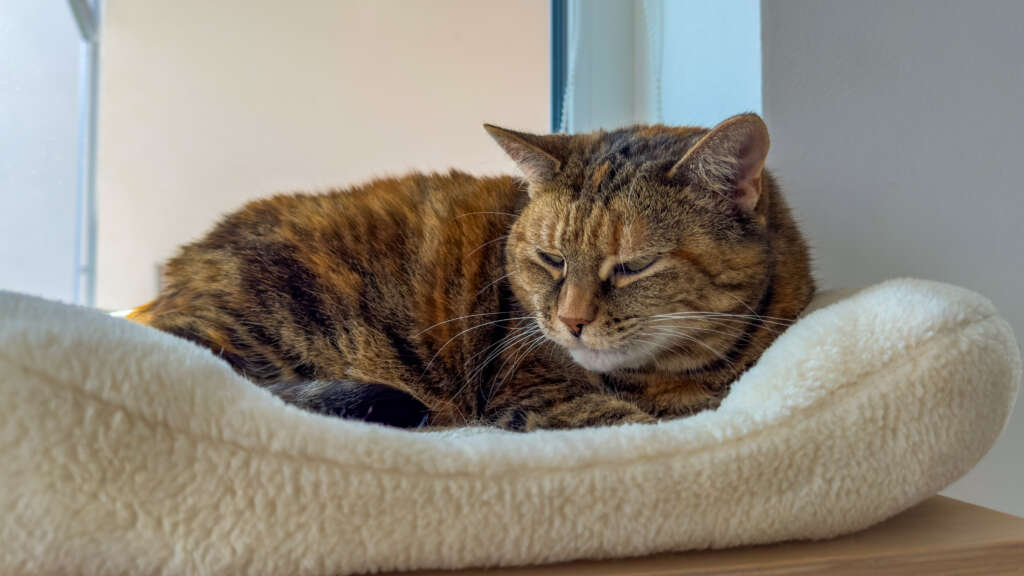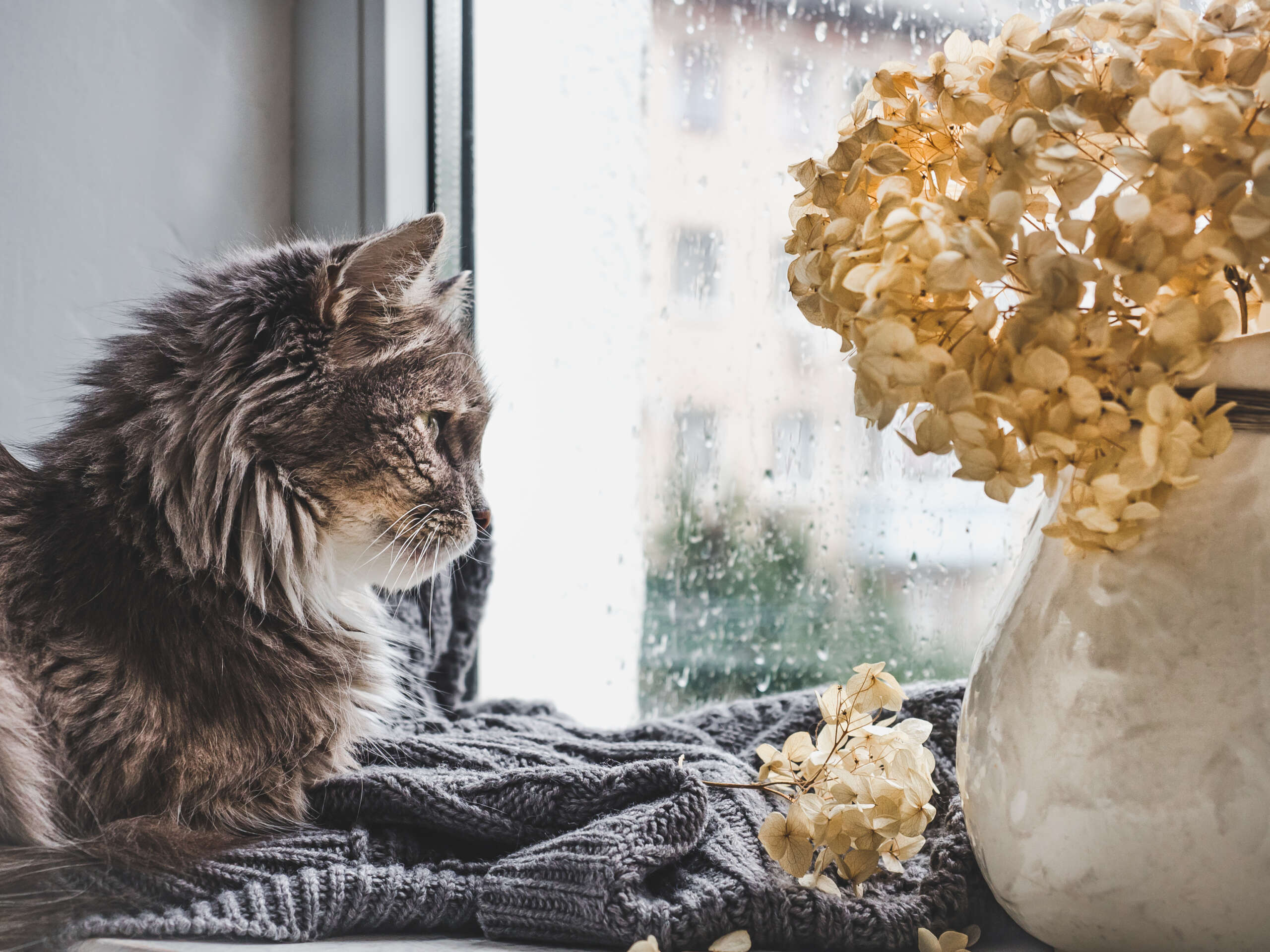Share This Article
Cats are now living into their twenties, thanks to better vet care and nutrition. It’s more important than ever to care for aging cats. We need to listen to their needs, not just see them as old cats. Senior cat care tips are key for any cat owner.
As cats get older, their needs change. They might move less or eat differently. These changes could mean they need medical help. Regular vet visits and a caring home are crucial for their comfort.
Looking after an aging cat involves many things. Like making sure they can easily get to food, water, and litter. We also need to help them get up to their favorite spots.
Things like night lights and regular routines help them feel secure. And don’t forget about their diet. Keeping them hydrated and fed well is important for their health.
Every little thing we do helps our cats feel safe and happy. Let’s make sure we give them the care they need. This way, they can enjoy their golden years with us.
Recognizing the Signs of Aging in Cats
As cats get older, around 10 years, it’s key to spot signs of aging in cats for their health. Cats often hide pain, so noticing small changes in behavior is important.
Older cats may find it hard to move because of muscle loss. This can make simple tasks like jumping or climbing stairs tough. It might mean they have serious health problems like osteoarthritis, affecting up to 90 percent of cats over 12. So, watching how your cat moves and acts is crucial for the aging cat’s health.
Senior cats might also change their habits. They might sleep more, play less, gain or lose weight, or groom differently. These signs could mean dental disease, common in 70 percent of cats by three. But with the right senior pet care, many problems can be managed if caught early.
Changes in how they go to the bathroom or meowing at night could mean kidney disease or hyperthyroidism. These are common in older cats. Regular vet visits, every six months, are key to catching and managing these issues on time.
Knowing and adjusting to these signs can make our older cats’ lives better. It also strengthens our bond with them. Creating a caring environment and tailored care for their needs is vital as they enter their golden years.
Caring for Aging Cats: Adapting Your Home and Routine
As cats get older, around 11 years, we need to change our homes and routines. This makes them more comfortable and helps with health issues. Adapting a home for senior cats means making thoughtful changes to improve their life.
Senior cats may have trouble moving because of pain or weakness. Ramps or steps can help them get to high places. Also, making sure food, water, and litter boxes are easy to reach helps a lot.
Comfort is key for older cats. Soft, easy-to-get-to beds help with pain and rest. Placing these beds in quiet, cool spots helps them sleep better.
Older cats may see and hear less. Keeping the home layout the same helps them feel secure. For those with hearing loss, a routine and quiet spaces are best.
Providing a nurturing and accommodating environment is key to caring for an aging cat. Small adaptations around the home can dramatically improve their comfort and safety, ensuring they enjoy their golden years with grace.
Senior cats may not smell or taste as well. Trying different foods or warming them up can help. Also, having many water stations around the house helps prevent dehydration.

Regular vet visits are very important as cats age. They often hide pain or illness. So, regular vet visits can catch health problems early. Changing your home and routine for your senior cat is about more than comfort. It’s about creating a caring, stress-free space for them.
Nutritional Needs of an Elderly Feline
As cats get older, their diet needs to change. The American Association of Feline Practitioners says senior cats start at age seven. Giving them the right food can make their golden years better.
Senior cats need a special diet. They have slower metabolisms and organs that work less well. This means they need food that’s easy to digest and packed with nutrients.
Starting around 11 years old, senior cats need more energy. But they still don’t need as many calories as younger cats. So, it’s good to feed them food that’s easy to digest and full of important nutrients.
Keeping senior cats hydrated is key. Dehydration can hurt their metabolism. Giving them water and wet food helps keep them hydrated and can lower the risk of kidney disease.
Feeding them more often and in smaller amounts is also important. Every cat is different, so their diet should match their health needs. This can help them stay healthy and happy.
Dental disease is common in older cats, affecting over 50%. Soft food can help with dental problems. It makes eating easier and helps prevent dehydration.
While some think older cats should eat less protein, studies now say they need more. This helps prevent muscle loss as they age. Senior cats may have trouble digesting protein, so it’s important to choose high-quality protein sources.
Maintaining Your Senior Cat’s Physical and Mental Health
As our feline friends age, it’s key to focus on their senior cat health maintenance. Cats over 11 years old are in their senior phase, similar to humans in their sixties and seventies. This stage requires extra attention to the physical and mental health of aging cats.

Engaging in senior cat activities is vital. These activities should help with physical issues like arthritis, which affects many seniors. Gentle play and puzzle toys keep their minds sharp and bodies active.
Keeping them hydrated is also crucial. Kidney disease is common in seniors, so they need to drink more water. Use pet water fountains and place water stations around the house to encourage drinking.
Regular vet visits, every six months, are essential for senior cat health maintenance. These visits help catch early signs of age-related diseases. Regular blood work and weight checks help track their health.
Keeping their environment safe and familiar is key for the mental health of aging cats. Senior cats don’t like changes, so keep their space consistent. Introduce new pets slowly to ensure they feel secure.
In summary, caring for senior cats means understanding and adapting to their needs. By focusing on activities, health checks, and environmental adjustments, we can improve their quality of life.
The Role of Veterinary Care in Managing Aging Cat Health
The importance of veterinary care for aging cats is huge. Senior pets face many health challenges that need careful watching. As cats get older, they need to see the vet more often.
The American Association of Feline Practitioners says senior cats should see the vet every six months. This helps catch early signs of health problems like kidney disease and diabetes.
At these visits, vets do a full check-up. They look at the cat’s weight, skin, coat, and teeth. This is important because older cats often have dental problems.
They also do blood and urine tests. These tests check if the cat’s organs are working right. They help find any health issues early on.
Good nutrition is key for senior cats. They can easily gain or lose weight. Eating the right food helps keep them healthy and happy.
Vets also talk about the cat’s behavior. They look for changes in how the cat eats, moves, and uses the bathroom. This helps them understand their health better.
Good communication between owners and vets is crucial. It helps catch any health problems early. This way, senior cats can live better lives.
Talking about veterinary care for aging cats is all about regular, special care. As cats get older, owners and vets work together. They aim to keep the cat healthy and happy.
Creating a Stimulating and Comfortable Environment for Senior Cats
Keeping our senior cats happy involves many things, like their diet and living space. A senior cat’s home should be calm and safe, meeting their special needs as they age. Cats over 10 years old often have trouble moving and may have arthritis.
Changes to their home can help a lot. Things like steps or ramps for their favorite spots and easier-to-use litter boxes are very helpful. These changes make it easier for them to move around.
Creating cozy spots for your cat to rest is key. Older cats love to sleep, and these spots should support their joints. Having more water bowls around helps them stay hydrated, which is important for senior cats.
Senior cats need both physical and mental stimulation. Grooming sessions are great for their health and can catch any new issues early. Interactive toys also keep their minds sharp. These activities can help prevent vet bills by keeping them healthy and alert.
Having a routine for your aging cat helps them feel secure. A stable home environment reduces stress and anxiety, which older cats are more prone to. By making your home senior cat-friendly, you ensure they are happy and comfortable in their golden years. Don’t forget to take them to the vet every six months for check-ups.


